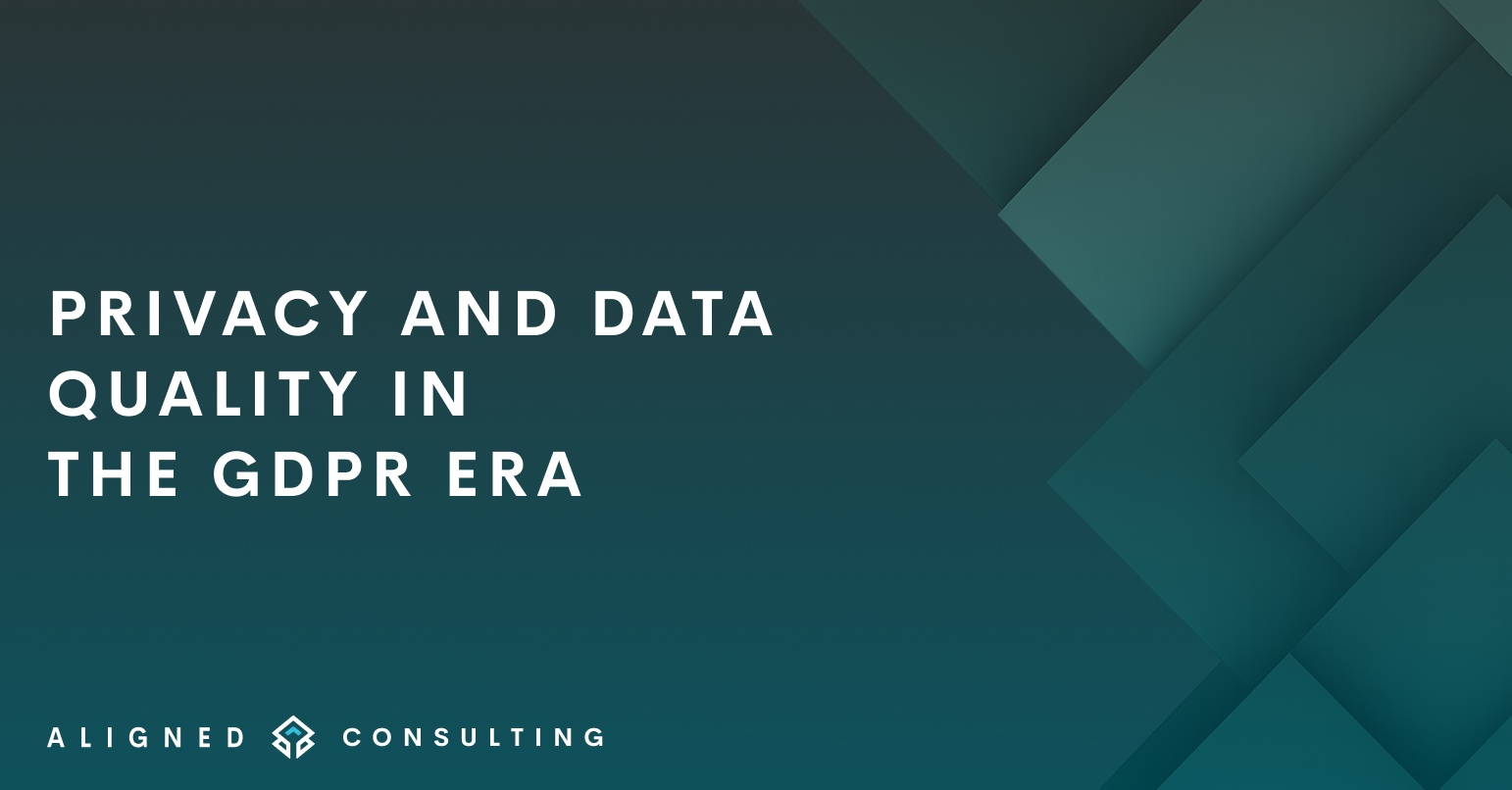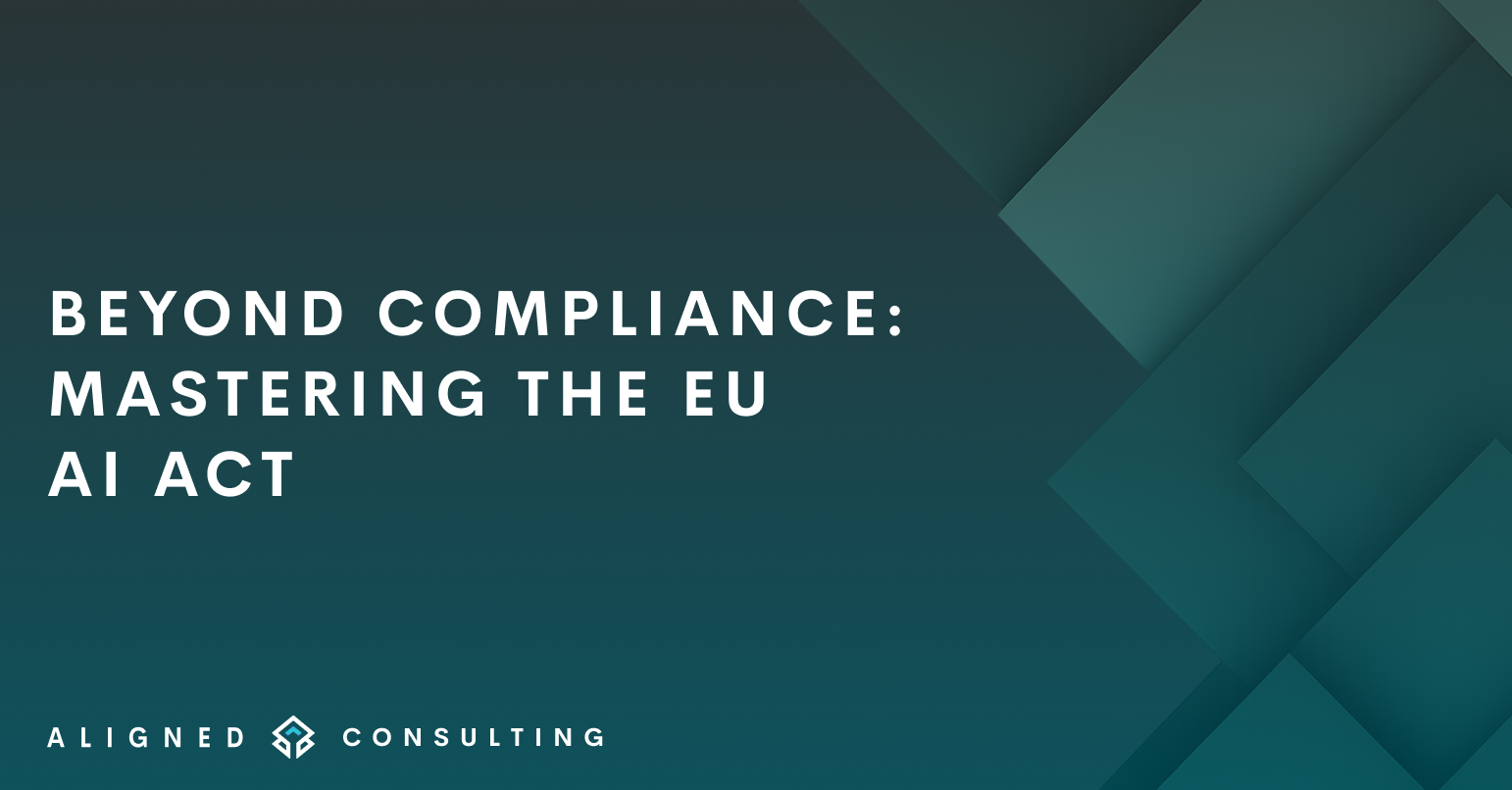
In today's data-driven business landscape, privacy and data quality have become intertwined concerns that every professional must address. The General Data Protection Regulation (GDPR) has further emphasised the importance of these issues since its introduction in 2018. Let's explore how GDPR has reshaped our approach to data management and what it means for your organisation.
The Evolution of Privacy: From "Leave Me Alone" to "Give Me Control"
The concept of privacy has transformed dramatically since Warren and Brandeis first defined it as "the right to be left alone" in 1890. In our digital age, privacy is now about control over personal information. GDPR codifies this shift, granting individuals specific rights over their data:
- The right to be informed
- The right of access
- The right to rectification
- The right to erasure
- The right to restrict processing
- The right to data portability
- The right to object
- Rights related to automated decision making and profiling
These rights empower individuals and place new responsibilities on organisations handling personal data.
Data Quality: A Cornerstone of GDPR Compliance
GDPR explicitly links data quality to privacy protection. Article 5(1)(d) of GDPR states that personal data shall be "accurate and, where necessary, kept up to date." This principle underscores the importance of data quality in maintaining privacy and complying with the regulation.
Poor quality data can lead to:
- Economic losses
- Incorrect decision-making
- Increased operational costs
- Potential non-compliance and hefty fines under GDPR
Key GDPR Principles for Data Quality
GDPR outlines several principles that directly impact data quality practices:
- Accuracy: Ensure that personal data is correct and current.
- Storage Limitation: Retain data only for as long as necessary.
- Purpose Limitation: Collect data for specified, explicit, and legitimate purposes.
- Data Minimisation: Process only data that is adequate, relevant, and limited to what is necessary.
These principles not only protect individual privacy but also promote better data management practices within organisations.
Practical Steps for GDPR-Compliant Data Quality
To align your data quality efforts with GDPR requirements:
- Conduct regular data audits: Systematically review your data to ensure accuracy and relevance.
- Implement data quality rules and policies: Define clear standards for data entry, processing, and storage.
- Monitor and maintain data quality: Perform regular checks to detect and resolve data issues.
- Implement robust security measures: Use encryption, access controls, and regular security assessments.
- Develop a data breach response plan: Prepare clear procedures for responding to breaches, including reporting within 72 hours.
The Business Case for GDPR-Driven Data Quality
Investing in data quality isn't just about avoiding fines; it’s a strategic business decision:
- Improved decision-making: High-quality data leads to better insights and strategies.
- Enhanced customer trust: Demonstrating respect for privacy can differentiate your brand.
- Operational efficiency: Clean, well-managed data reduces errors and processing time.
- Risk mitigation: Accurate data minimises the risk of breaches and non-compliance.
Conclusion: Quality and Privacy Go Hand in Hand
In the GDPR era, data quality and privacy are inseparable. By focusing on data accuracy, relevance, and minimisation, organisations can not only comply with GDPR but also derive greater value from their data assets.
As a professional, embracing these principles will help you navigate the complex landscape of data management and privacy protection in today's digital economy.
Remember, GDPR compliance is an ongoing process. Regularly review your data practices, stay informed about regulatory updates, and foster a culture of privacy and data quality within your organisation.
By doing so, you’ll turn data protection from a regulatory burden into a competitive advantage.


